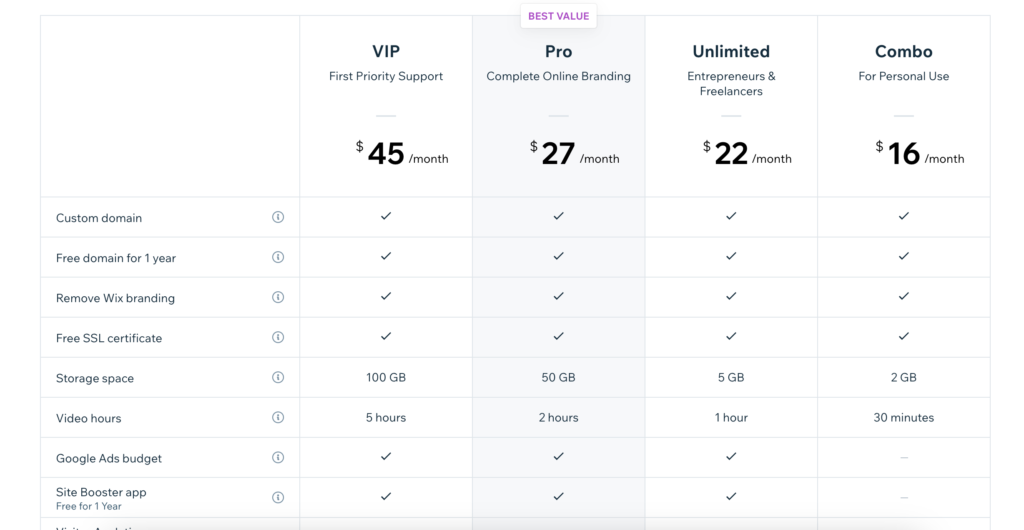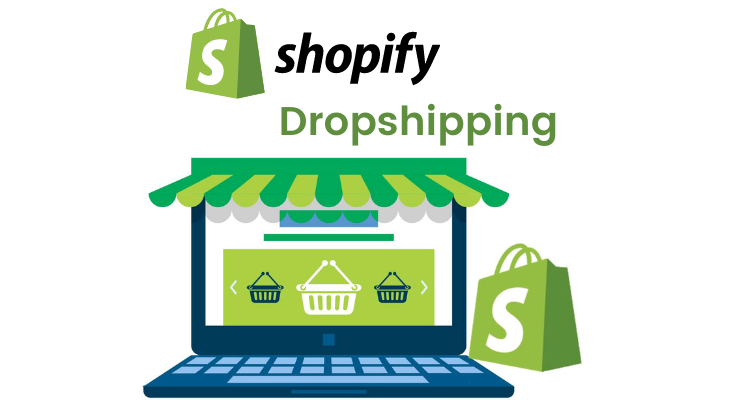The eCommerce industry has experienced tremendous growth over the past decade, and online shopping has become an integral part of our lives.Shopify and Wix are two eCommerce platforms that allow you to create, design, and launch your online store.
However, with both options available, you may be wondering which one is the better choice.
Thankfully, both platforms offer an easy-to-use interface that makes it simple to set up your e-commerce store without extensive technical knowledge, trained personnel, or a significant investment.
In this article, we’ll provide an in-depth comparison of the two platforms, highlighting their respective strengths, features, advantages, and disadvantages.
Overview of Wix
Wix is a web development company that provides tools and services for creating HTML websites. It was established in Israel in 2006 and now operates in nearly 190 countries worldwide. Wix offers an intuitive drag-and-drop interface for creating websites for online shopping, community forums, contact forms, social media, and other web services.

In addition to its headquarters in Tel Aviv, Wix has several offices in countries such as India, Poland, Brazil, Germany, and Canada. Currently, over 200 million subscribers use Wix to create various types of websites, including e-commerce shops, service stores, booking websites, and restaurant pages.
Here are some key features of Wix:
- Its simple drag-and-drop tools make website building easy and accessible, even for those without programming skills.
- Wix provides hundreds of templates for beginners to start with.
- It is one of the most affordable website creation platforms available, with plans starting at just $16 per month.
- There are no transaction fees for selling on Wix.
- Wix offers a robust support system, including multiple guides for building a website from scratch, 24/7 online assistance, live chats, and more.
Overview of Shopify
Shopify is a major rival to Wix in the realm of e-commerce. This Canadian-based online platform provides a comprehensive solution for all types of e-commerce activities, including selling, advertising, shipping, customer relations, and payments. Similar to Wix, merchants can create their own websites, mobile sites, and applications using user-friendly web tools.

Established in 2006, Shopify has experienced tremendous growth in terms of its customer base and sellers. Currently, the platform operates in more than 180 countries and has over 1.5 million active websites. Shopify is particularly suited to large-scale businesses, offering a range of advanced tools for marketing, customer engagement, payment, taxation, and more.
Some of Shopify’s key features include: the ability to sell products on multiple platforms, including Facebook, TikTok, Amazon, and others. The platform also offers more than 100 payment gateways and third-party payment options, as well as a wide library of third-party applications and extensions for e-commerce stores.
Shopify also provides hundreds of pre-designed templates, inventory management, powerful SEO tools, and marketing tools, making it an ideal choice for larger businesses.
Ease of Use
When deciding between Wix and Shopify, the question arises: which one is easier to use? Both platforms allow users to create websites without any coding skills, but they differ in their flexibility.

For instance, Wix is a great option for creating a user-friendly website for a small business. It has all the necessary features for designing a website and selling products, but it wasn’t primarily designed for e-commerce. While there are e-commerce features available, they may not be enough to run a full online store. Wix’s editor is particularly good at creating pages like Contact Us, About Us, and Product Lists, without requiring extensive coding or design skills.
On the other hand, Shopify is focused solely on hosting e-commerce stores. In addition to hundreds of website templates and designs, there are specialized tools for shipping, payment, returns, dropshipping, advertising, and SEO. Creating a website is just as easy as it is on Wix, but Shopify has an extra suite of e-commerce tools that make it a better option for those looking to start an online business.

Both platforms are easy to use and offer simple drag-and-drop tools for creating stunning websites without writing extensive code. If you’re looking to showcase and sell products and services, Wix’s user-friendly tools can help you create highly professional website content. However, if you’re planning to start an online business and want to sell products and services through multiple sales channels, Shopify’s suite of e-commerce tools is a better option for scaling your business.
Wix vs. Shopify Pricing Plans
Wix offers four plans for website building and expansion, namely Combo, Unlimited, Pro, and VIP.

The Combo plan includes:
- Custom domain for your website.
- Free domain on yearly subscription.
- 24/7 customer service.
- Free SSL certificate.
- Up to 30 minutes of video upload.
- 1 GB bandwidth, and 500 MB storage.
With the Unlimited plan, you get:
- SSL certificate.
- Custom domain service.
- 24/7 customer care.
- Infinite bandwidth.
- 10 GB storage.
- Up to 1 hour of video upload.
- Premium apps and vouchers on yearly subscription.
- The ability to remove Wix ads.
The Pro plan includes everything from the Combo and Unlimited plans, plus:
- 20 GB of storage.
- Up to 2 hours of video upload.
- Free calendar application for one year.
- Customized logo for your store and social media.
The VIP plan includes everything from the Combo, Unlimited, and Pro plans, plus:
- Up to 35 GB of storage.
- Ability to upload up to 5 hours of video.
- VIP support on priority level.
On the other hand, Shopify offers three plans for users, namely Basic, Shopify, and Advanced.

The Basic Plan includes:
- An online store with unlimited products.
- 2 members login.
- Up to 4 assigned inventory locations.
- Free SSL.
- Abandoned cart recovery.
- Discount codes, and gift cards.
- Custom emails.
- Up to 77% discount on shipping, and a 2% fee on third-party transactions.
The Shopify plan includes everything in the basic plan plus,
- Automated e-commerce tasks.
- Up to 5 inventory locations and 5 user logins.
- Shipping discounts up to 88%, and a 1% third-party transaction fee.
The Advanced plan includes everything in the Basic and Shopify plans, 15 staff account logins and up to 8 inventory locations, advanced reports and third-party shipping rates
Designing and Customization
Both Wix and Shopify provide users with ample tools to create professional and visually appealing websites for their business. Wix offers a wide range of templates, although not all are tailored for e-commerce stores. Users can choose from various styles such as jewelry, clothing, and pet supplies, as well as specific pages including a contact page, an About Us page, and a Welcome page.

Customizing Wix themes is easy and can be done in under an hour, and it takes less than a day to get a website live. One downside is that once your website is live, you can’t edit the theme. Wix templates are also optimized for mobile phones, ensuring that they look great on all devices.
Shopify also has advanced designing tools that can have your store up and running in less than 2 hours, depending on the number of products you add. With approximately 80 templates, users can choose from a variety of niches such as gadgets, apparel, and home supplies.
While not all of Shopify’s templates are free, investing in a paid template can offer more advanced editing features. We found that it was easier to set up and design a store on Wix than on Shopify, thanks to the platform’s larger selection of free templates.
Inventory and Management
In terms of SEO, Shopify surpasses Wix due to its focus on providing a comprehensive e-commerce service with various SEO tools and app integrations. With Shopify, you can advertise and sell products on multiple channels, showcase social media posts on your store, add video adverts, and implement customer subscription forms.
Wix, on the other hand, is better suited for small businesses with limited products and services. However, it offers competitive marketing features and provides excellent blog marketing services and email campaigns. Although Wix offers some SEO features, Shopify has more advanced options that cater to e-commerce businesses.
When it comes to inventory and shipping, Shopify is the clear winner as it offers a wide range of inventory and shipping management tools. With Shopify, you can list more products, receive inventory reports, manage supplier information, and estimate revenue, expenses, and net profit based on inventory levels.
In contrast, Wix offers limited inventory management services and mostly relies on third-party applications for revenue reports and inventory management. Wix has good shipping assistance features, but it heavily depends on third-party app integration, especially for international shipping.
Shopify has an extensive shipping network and offers competitive shipping costs up to 88% less than standard rates. It provides various features such as printing shipping labels, organizing local pick-ups, and managing complex international deliveries.
Wix vs Shopify Pros and Cons
Below are the pros and consof using Wix and Shopify for your business.
Pros of Wix
- Wix provides a free plan that you can use indefinitely.
- The eCommerce plans of Wix are more budget-friendly compared to Shopify.
- There are no transaction fees when using third-party payment gateways with Wix.
- Wix offers a wider range of templates across various niches compared to Shopify.
- Wix supports website translation into many languages, while Shopify has fewer language options.
Cons of Wix
- Wix templates are not fully responsive, which can lead to compatibility issues on some devices.
- Customers cannot checkout in multiple currencies on Wix.
Pros of Shopify
- Shopify has better SEO capabilities than Wix, making it easier to rank higher on search engines.
- You can connect your online store with numerous third-party apps using the Shopify app store.
- Abandoned cart recovery feature is included in every plan of Shopify, which helps in recovering lost sales.
- Changing templates is simpler on Shopify than Wix.
- Shopify integrates with a variety of third-party payment processors.
Cons of Shopify
- Transaction fees are charged when using a third-party payment processor on Shopify.
- You need to pay extra to use premium Shopify themes.
Wrap Up: Who’s The Winner?
This comparison guide covers the benefits and drawbacks of using Wix and Shopify for your online store. Both platforms excel at what they are designed for, and the choice between them honestly depends on your business needs. Wix is more suitable for small, brand-exclusive stores, while Shopify offers greater flexibility and features for building an online shopping website.
Overall, we have found that Shopify provides more advanced features for building an online store, such as inventory management, shipping, and SEO tools. It is an ideal choice for businesses with a larger budget and higher growth aspirations. On the other hand, Wix is a great platform for beginners or small businesses looking for more control over the design and creativity of their website.
In conclusion, choose Shopify if you are looking for a more powerful e-commerce solution with advanced sales and analytics tools. For those starting on a smaller scale, or with a limited budget, Wix is a good option with its strong focus on design, marketing features, and customer services.




Wix vs Shopify: Which One Should You Use?